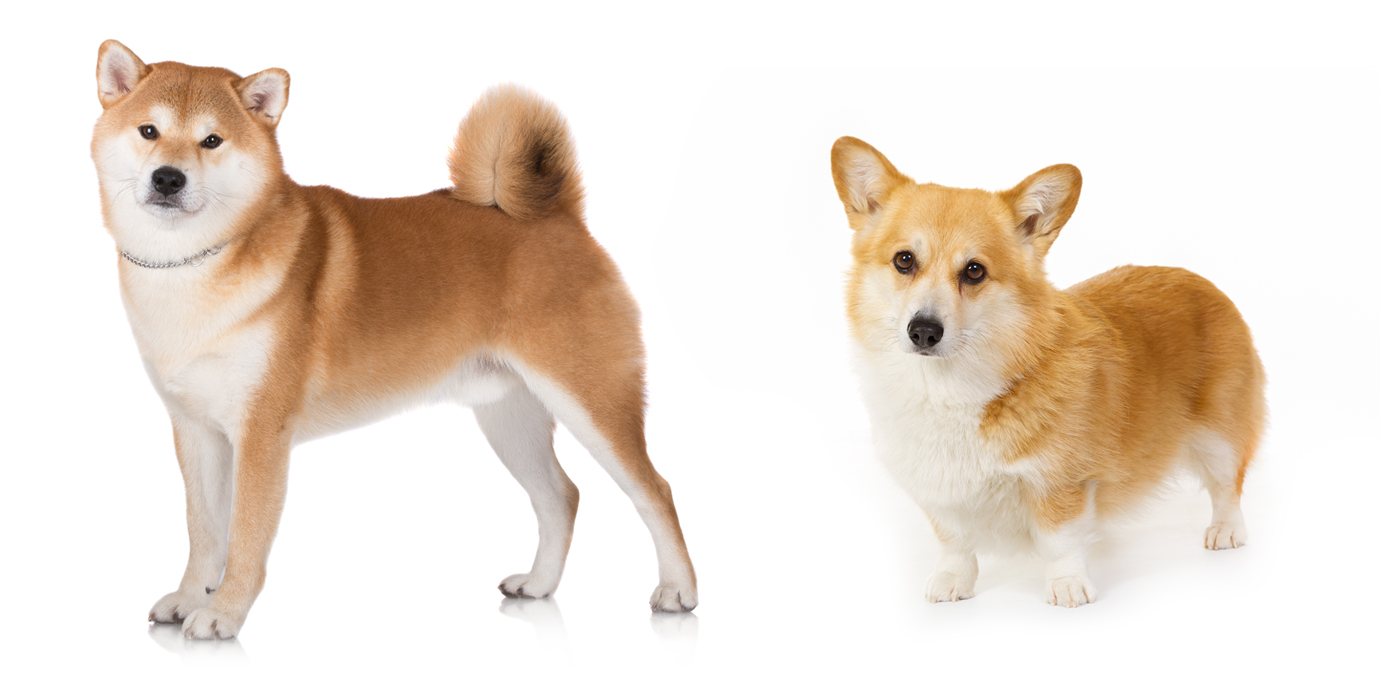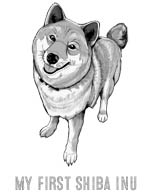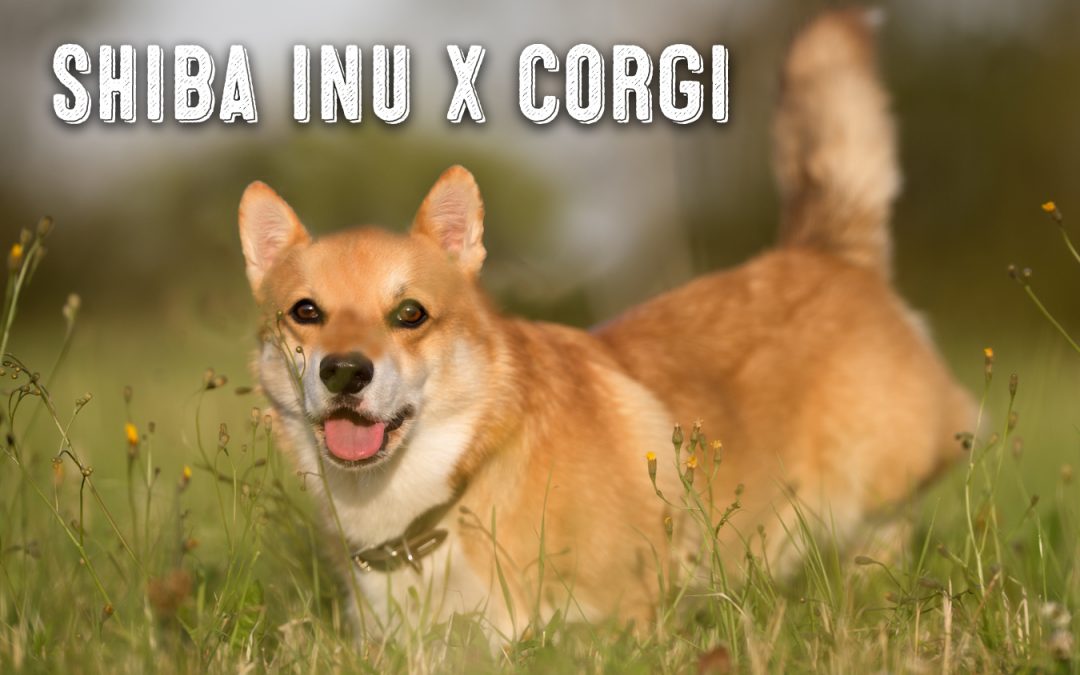Shiba Inu Corgi Mix
A Shiba Inu Corgi Mix is just as it sounds - a purebred Shiba Inu mixed with a purebred Pembroke Welsh Corgi. The term, designer dog is what is used to call these types of purebred mixes . The Corgi Shiba Inu mix is often referred to as Corgi Inus.
This article will give you more information on this specific hybrid cross and help you decide if Corgi Inu is right for you. Additionally, you will learn about the controversy behind designer dog breeds that will make you better informed about your future choices.
Two Foxlike Dogs With Very Different Temperaments
Both Shiba Inus and Corgis have a fox like appearance due to their coat coloring and pointed ears. Of the two, the Shiba Inu being an ancient breed has the most fox like appearance.
While the Shiba Inu has a balanced and symmetrical body, the Corgi has short legs and a long torso in relation to the rest of it's body.
While these dogs share a somewhat similar physical features, their personality and temperaments are quite different.
The Shiba Inu being an ancient, basal breed of dog is aloof towards strangers and very independent. Although the Shiba Inu appears to be a cute and cuddly dog, they actually don't like too much prodding and affection.
The Corgi is a much more affable breed that enjoys attention and human company. Corgis are much easier to train than Shiba Inus as they are highly motivated by food.
The common logic between breeding these two breeds together is that perhaps a friendlier fox like dog would be produced. However it is important to realize that there are consequences - many of them negative - that do arise in hybrid breeding.

.
The Drawbacks of Designer Dogs
One of the main drawbacks of designer dogs is the fact that many who breed these type of hybrid mixes run puppy mill like operations. Because the designer dog is a mix of two very different breeds, the breeder can get away with breeding low quality purebreds without anyone noticing.
Pedigree breeders take great pride in the dogs they produce and would almost never think of crossing their dogs with another breed unless they absolutely found good reason to do so. A tremendous amount of care, research, and genetic testing would be necessary to ensure that both breeds come from a strong lineage that has few health defects.
Even in the pedigree world, breeding programs have sometimes produced dogs that are less healthy than their ancestors. These situations are not fair to dog that now suffers more health issues and the future generations of the breed.
Another argument against designer dogs is the "why mess with a good thing" argument. In this case of a Shiba Inu Corgi mix it would be understandable that one would question the logic of breeding a physically sound and balanced dog (Shiba Inu) with an asymmetrical dog specimen that does have a history of serious health issues (Corgi).
To many a Shiba Inu fancier this type of hybrid breeding would be disrespectful to a breed that prides itself on it's natural untouched beauty.
True Corgi fans as well will be disappointed to find that their once friendly, goofy, and adorable dog with big eyes and ears transformed into a less friendly, but nonetheless awkwardly proportioned dog.
The Case For Breeding Hybrid Dogs
Supporters and breeders of designer dogs claim that breeding two different breed of dogs will promote heterosis or “hybrid vigor”. They also feel that they would be equipped to "breed out" undesirable genetic and recessive traits. These claims are largely unsubstantiated in the scientific community
Common Characteristics of a Shiba Inu Corgi Mix
A Shiba Inu Corgi mix will typically be a moderately energetic dog that is fairly easy to train. Personality wise, Corgi Shiba Inu mixes are usually calm, well-mannered dogs that can get along with children and other animals if properly introduced.
Some Corgi Inus take on both the stubbornness of Shiba Inus and the bossiness of Corgis resulting in a dog that can be difficult. Extra obedience training and consistency is needed in these cases.
Shiba Inus were originally hunting dogs, while Corgis were bred for herding. Corgis were actually bred to have a short stature in order to avoid being kicked by the animals they herded. Putting these two characteristics together in a Corgi Inu results in a dog with a moderate prey drive that should always be kept on a leash unless well trained.
Physical Characteristics And Lifespan of Corgi Inus
A typical male Shiba Inu Corgi mix will weigh between 19 - 25 pounds with a female Corgi Inu weighing between 17 - 22 pounds. In terms of height, male Corgi Inus are between 12 -14 inches tall and the females between 10 - 12 inches tall.
Both Shiba Inus and Corgis have similar lifespans, so Corgi Inus typically have a lifespan between 12 - 14 years.
Health Issues of Corgi Inus
Overall, Shiba Inus and enjoy very good health. The most serious health issues with Shiba Inus are glaucoma, cataracts, allergies, patellar luxation and occasionally hip dysplasia.
Pembroke Welsh Corgis however, are prone to some serious health issues such as intervertebral disc disease and epilepsy.
Additionally, Corgis sometimes suffer from urinary stones, degenerative myelopathy. Lens luxation, von Willebrand's Disease (vWD), and progressive retinal atrophy (PRA).
Owners of Shiba Inu Corgi mixes should actively monitor for the health issues that affects both breeds, especially hip dyplasia and eye issues.
Should I Get a Corgi Inu?
The decision to chose a dog breed is a highly personal choice that should be made with careful consideration into the consequences of your decisions. We here at My First Shiba Inu do not advocate for the breeding of designer dogs in general. Instead, we use our platform to provide as much information as possible about the issue and let you as an individual make an informed choice.
Furthermore, there are many instances when our readers already have a designer dog mix and would benefit from the information we can provide about the particular hybrid being that the mixes we write about involve Shiba Inus.

